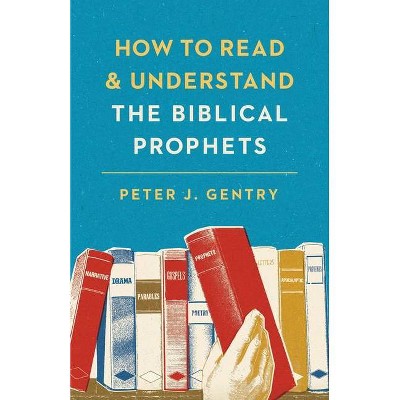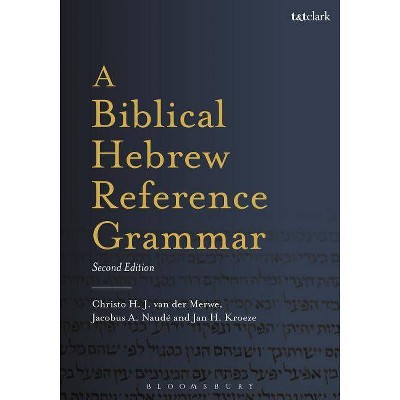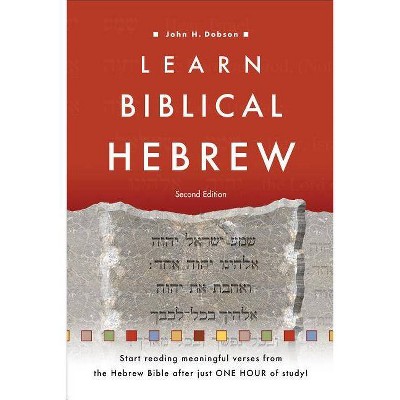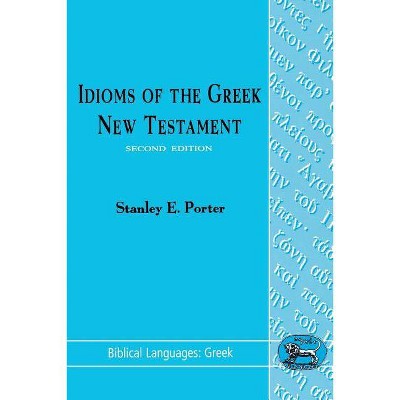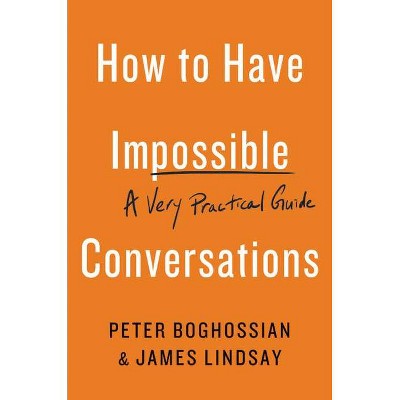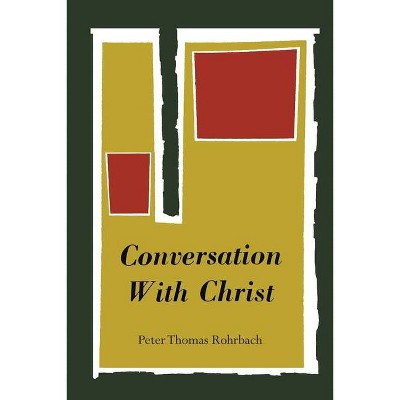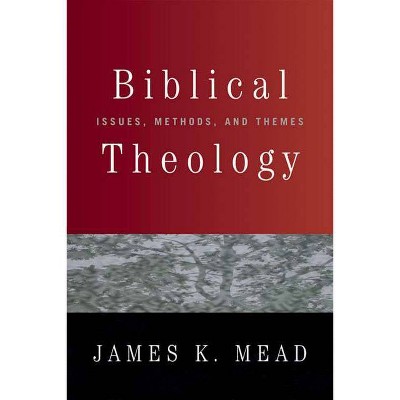How Biblical Languages Work - 2nd Edition by Peter James Silzer & Thomas John Finley (Paperback)
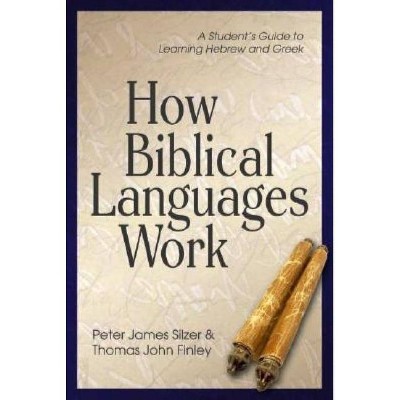
Similar Products
Products of same category from the store
AllProduct info
<p/><br></br><p><b> Book Synopsis </b></p></br></br>A practical and easy to understand guide to learning both Hebrew and Greek. Ideal for Biblical language scholars. This book provides the first practical beginner's guide to the main components of biblical Hebrew and Greek. It will bring the reader through various organizational structures in Hebrew and Greek using insights gained from years of linguistic and biblical experience. The authors intend this book to be used as a tool to supplement traditional courses in Hebrew and Greek, and to show that these languages are organized in much the same way as other languages. The last chapter includes tips to help each reader learn in his own way. Written by two extremely well-qualified linguists. Uses helpful learning methods by moving from known (English) to unknown (biblical languages). Ideal companion to first-year grammars. Provides a key for getting the most out of both Hebrew and Greek<p/><br></br><p><b> From the Back Cover </b></p></br></br><p>An ideal supplement to first year Hebrew and Greek grammars, this practical guide makes learning the biblical languages a less daunting task. By introducing students to characteristics and functions of all human language, experienced linguists Silzer and Finley create the basis from which to describe the major features of Hebrew and Greek: how the sounds are pronounced, how words are put together, how phrases and clauses are structured, how words convey meaning, and how languages change. </p> <p>The book includes practical exercises, a glossary of linguistic and grammatical terms widely used in standard grammars of Greek and Hebrew, and other resources for further study, including Internet sites.</p> <p>"Thanks to Silzer and Finley, we [now] have a book that discusses the basic principles of linguistics and semantics in a readable, understandable manner that will not intimidate or discourage the novice. Students who read this book before taking first year Hebrew and/or Greek should find the task of learning the language(s) much less painful and tedious than it would be otherwise."</p> --Robert B. Chisholm Jr.<br> Dallas Theological Seminary</p> <p>"This marvelously clear and cogent introduction to biblical linguistics should be required reading for every student of Hebrew and Greek. . . . The only shame is that this book was not available decades ago, when the rest of us were doing our language study!"</p> --Mark L. Strauss, Ph.D.<br> Bethel Seminary, San Diego, Cal.</p> <p><strong>Peter James Silzer </strong>(Ph.D., Australian National University) has worked in linguistics and Bible translation since 1972 and now teaches in the School of Intercultural Studies at Biola University in La Mirada, California, on behalf of the Summer Institute of Linguistics and Wycliffe Bible Translators. </p> <p><strong>Thomas John Finley</strong> (Ph.D., University of California Los Angeles) is professor of Old Testament and Semitics at Talbot School of Theology in La Mirada, California. He is the editor of <em>A Bilingual Concordance to the Targum of the Prophets: Ezekiel</em> and a commentary on Joel, Obadiah, and Micah.</p><p/><br></br><p><b> Review Quotes </b></p></br></br><br>It is an ideal supplement to the first-year Hebrew and Greek student or any student seeking to do better Bible word studies. This book includes practical exercises, a glossary of terms, resources for further study, and a listing of helpful Internet sites relating to languages.-- "Book Marks" (1/1/2007 12:00:00 AM)<br><br>Students and others who want to study biblical languages will find this a helpful tool. The authors discuss the basic principles of language: morphemes, phonemes, verbs, nouns, phrases, and clauses. They further explain how semantics, figurative language, context, and sentence structure work to produce meaningful thought. An understanding of these terms greatly facilitates the mastery of Greek and Hebrew.--Glen H. Jones "Pulpit Helps" (11/1/2004 12:00:00 AM)<br>
Price History
Price Archive shows prices from various stores, lets you see history and find the cheapest. There is no actual sale on the website. For all support, inquiry and suggestion messagescommunication@pricearchive.us


